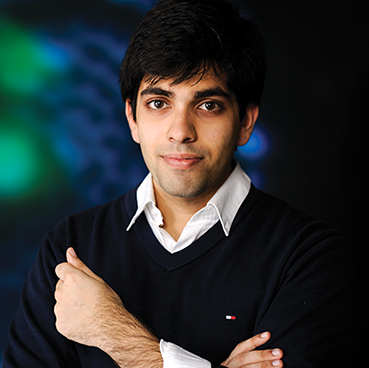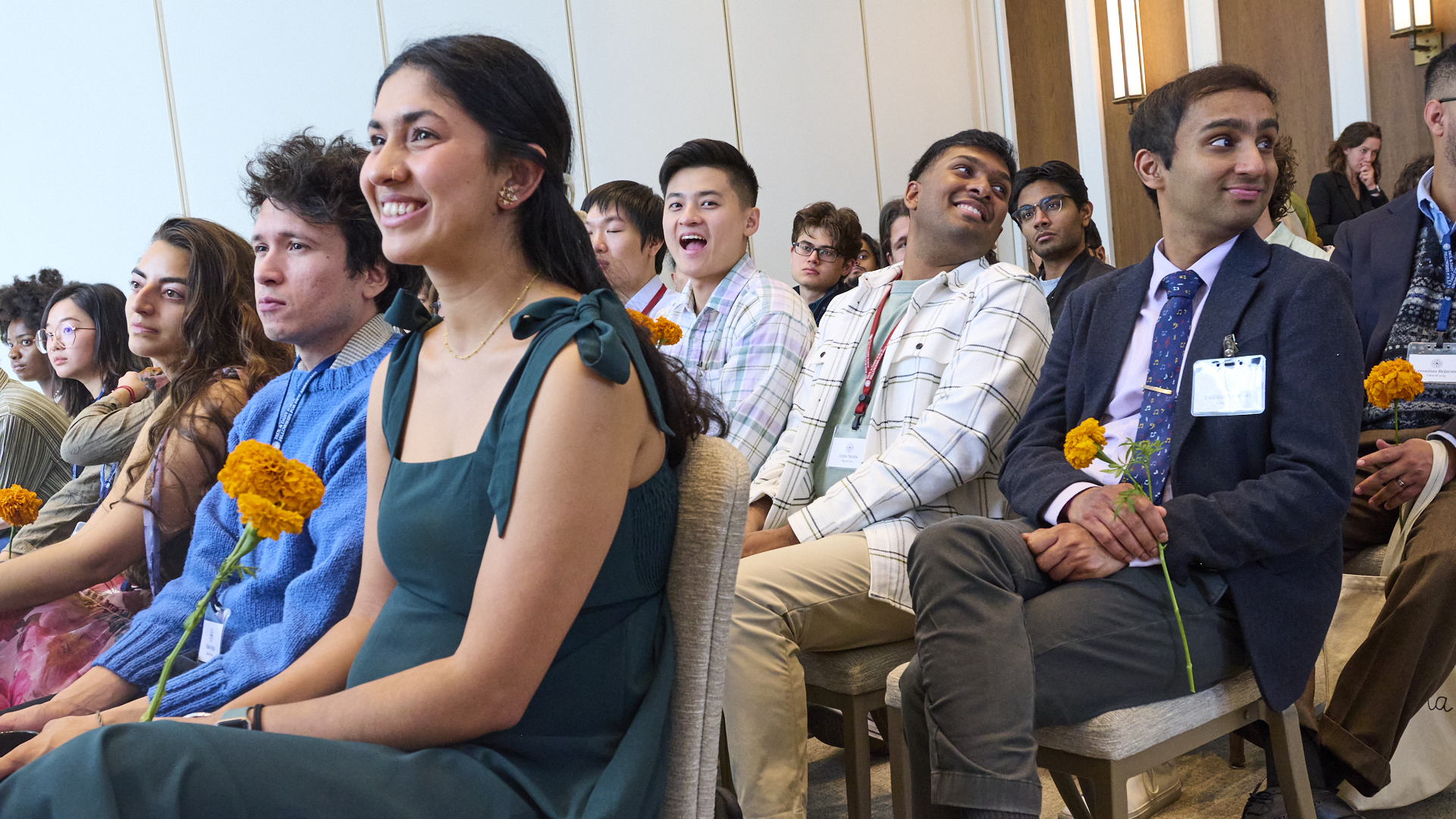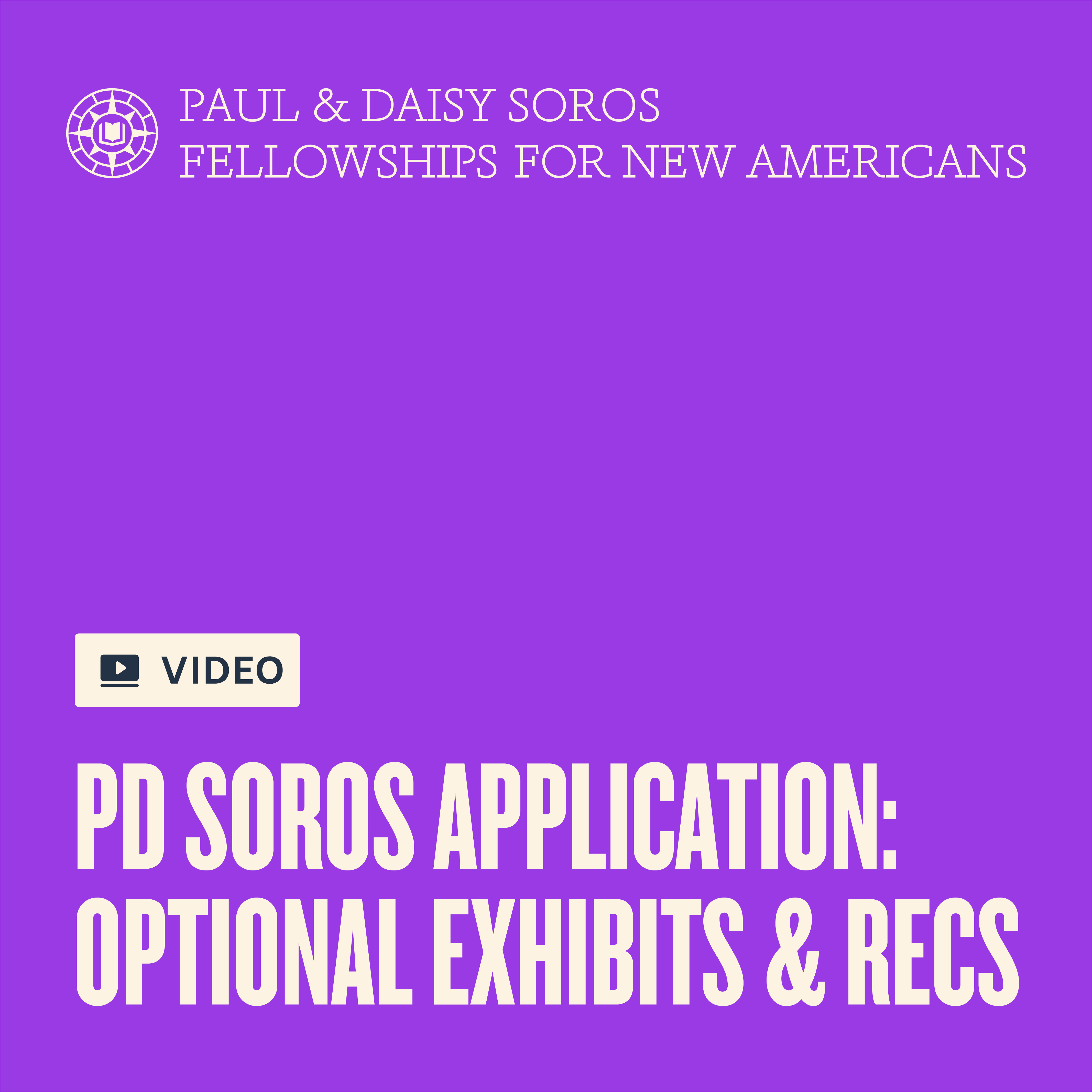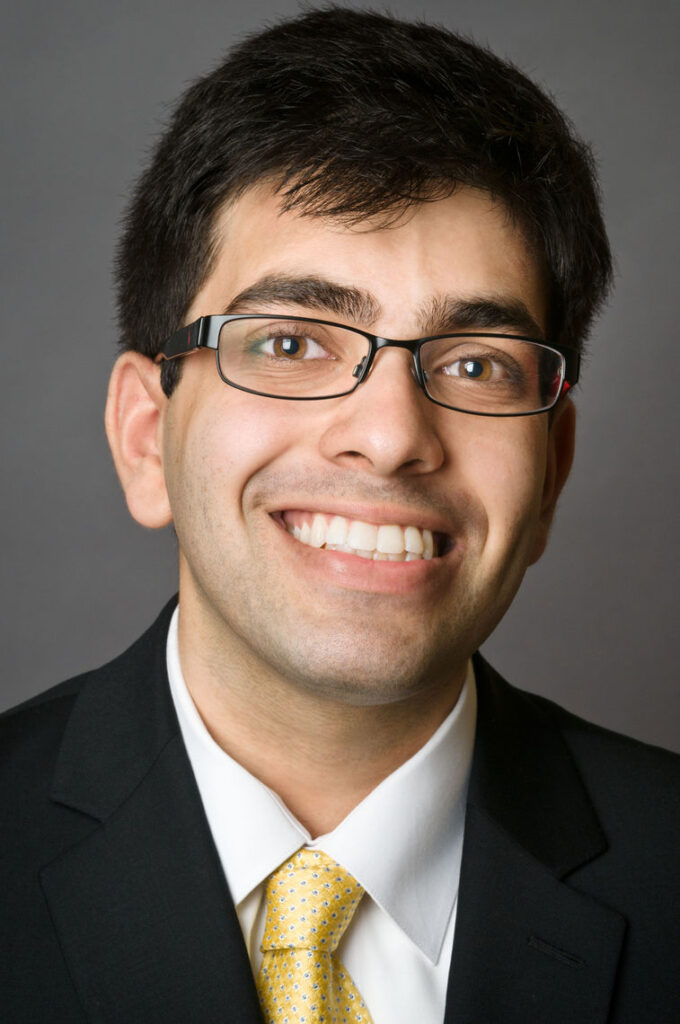- Fellow Highlights
Q&A: MD/PhD Student Paras Singh Minhas Looks Back At The Fellowship

The Paul & Daisy Soros Fellowships for New Americans provides two years of funding for outstanding graduate students who are immigrants and children of immigrants. After two years the Fellows join a lifelong community of past Fellows. We asked Paras Singh Minhas, a 2015 Paul & Daisy Soros Fellow, to look back at the first two years of the Fellowship and what they have meant to him.
Paras was born in Baltimore, MD, the son of two Sikh immigrants. At a young age, he was exposed to the debilitating consequences of neurological diseases, which impacted his own family members. Refusing to be silent, Paras began finding his voice through the art of debate, winning local, state, and national competitions starting in high school and later in the William Pitt Debating Union at the University of Pittsburgh. During his time at the University of Pittsburgh, Paras founded the Longitude Pittsburgh Organization, an NGO dedicated to empowering adolescent orphans in Ghana and India and helping them to obtain sustainable careers. He also became the first president of the Student Health Advisory Board. Paras has been awarded the Amgen, Goldwater, and Marshall Scholarships for his insightful research in neurology and policy initiatives in psychiatry. He is now an MD/PhD student at Stanford School of Medicine.
What advice would you give to someone who is thinking of applying?
I know everyone approaches these applications with a bit of skepticism (i.e. what does the fellowship committee really want to see?). I highly recommend simply being yourself and allowing everything to fall on the table. Don’t hold back your raw emotion, thoughts, and struggles because that is what makes you so beautiful. I truly believe that the more open you are with your application, the higher the likelihood you will succeed in applying.
Where are you with your graduate program now? What’s next?
I am currently in the fourth year of the eight year MD/PhD program at Stanford School of Medicine. Having completed the first two years of medical school and my qualification exams in graduate school, I am now conducting thesis work on immunometabolism in the context of Alzheimer’s disease. More specifically, I study NAD+ metabolism and its effects on immune phenotype in context of microglia and macrophages in several AD-immune models.
After my thesis, I will enter clinical rotations in medical school and then onto residency and hopefully the exciting world of medicine and scientific research as a physician-scientist!
You’re now finishing up the second year of the program. Has the Fellowship been what you expected?
In short, no! Unlike other fellowships, I was surprised to find how close Fellows remains even after the initial couple of meetings. There is rarely a day that goes by that I am not speaking to another Fellow just to simply say “hi,” joke around, or seek out advice. I truly believe that is what makes the Paul & Daisy Soros Fellowships unique! You now have a group of mentors and colleagues who are family and truly know you fully.
What have the primary benefits of The Paul & Daisy Soros Fellowship been for you?
The Fellowship allowed me to pursue my intellectual interest in metabolism in Alzheimer’s disease. By providing the funding for the first two years of my PhD, the Paul & Daisy Soros Fellowships made it possible to join the PhD program in neuroscience at Stanford so that I could supplement my MD studies with research. The Fellowship also made it possible to start pursuing a career as a physician-scientist by providing tuition funding for the MD/PhD program. Perhaps even more important, however, the Fellowship introduced me to a wonderful and loving group of individuals who continue to inspire me on a daily basis and are now great friends, colleagues, and collaborators!
How do you plan to stay active with the Fellowship community in the years to come?
Currently, I collaborate with fellow PD Soros Fellows and also speak daily with friends who are part of the Fellowship community. If I get the privilege of joining academic medicine I would like to pay the Soros fellowship back by serving as a mentor to Fellows and even applicants as encouraging diversity in academia is of the utmost importance to me. In addition, I would like to work with the PD Soros Fellowship to develop more programing to better support New Americans and even immigrants to the United States. ∎
Keep Exploring
-
 Read more: Q&A with MD/PhD Student Silvia Huerta Lopez
Read more: Q&A with MD/PhD Student Silvia Huerta LopezQ&A with MD/PhD Student Silvia Huerta Lopez
-
 Read more: PD Soros Eligibility Guide for PhD Applicants
Read more: PD Soros Eligibility Guide for PhD Applicants- Applicant Information
PD Soros Eligibility Guide for PhD Applicants
-
 Read more: Watch: Optional Exhibits & Recommendations
Read more: Watch: Optional Exhibits & Recommendations- 2025 Information Sessions
Watch: Optional Exhibits & Recommendations
-
 Read more: Watch: Essay Writing information session
Read more: Watch: Essay Writing information session- 2025 Information Sessions
Watch: Essay Writing information session
